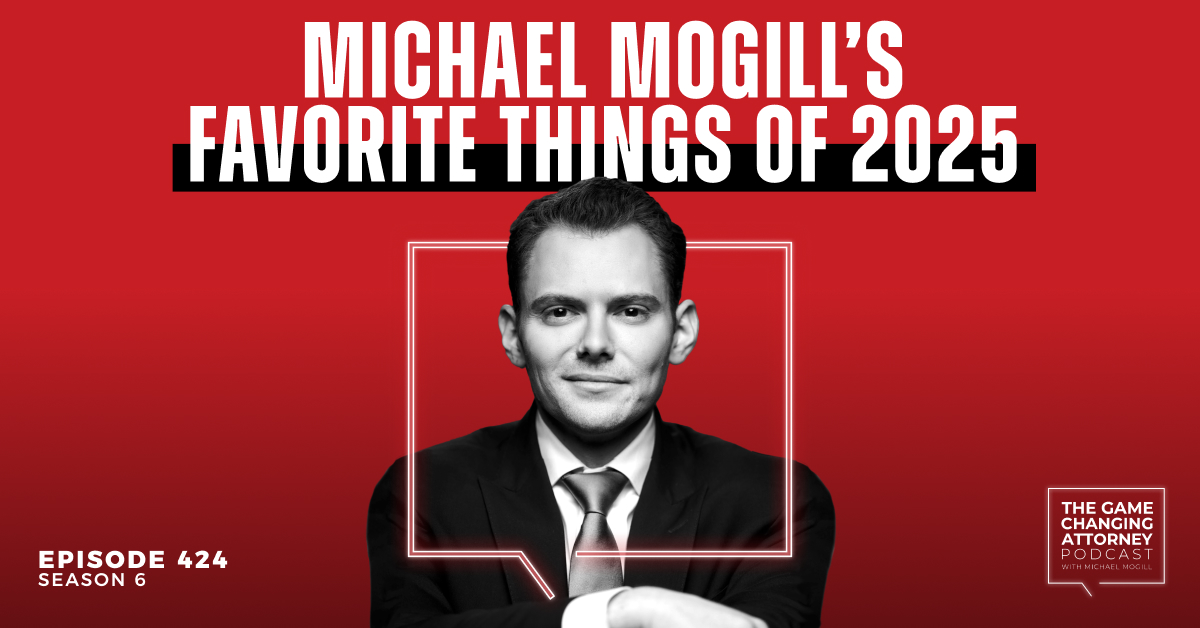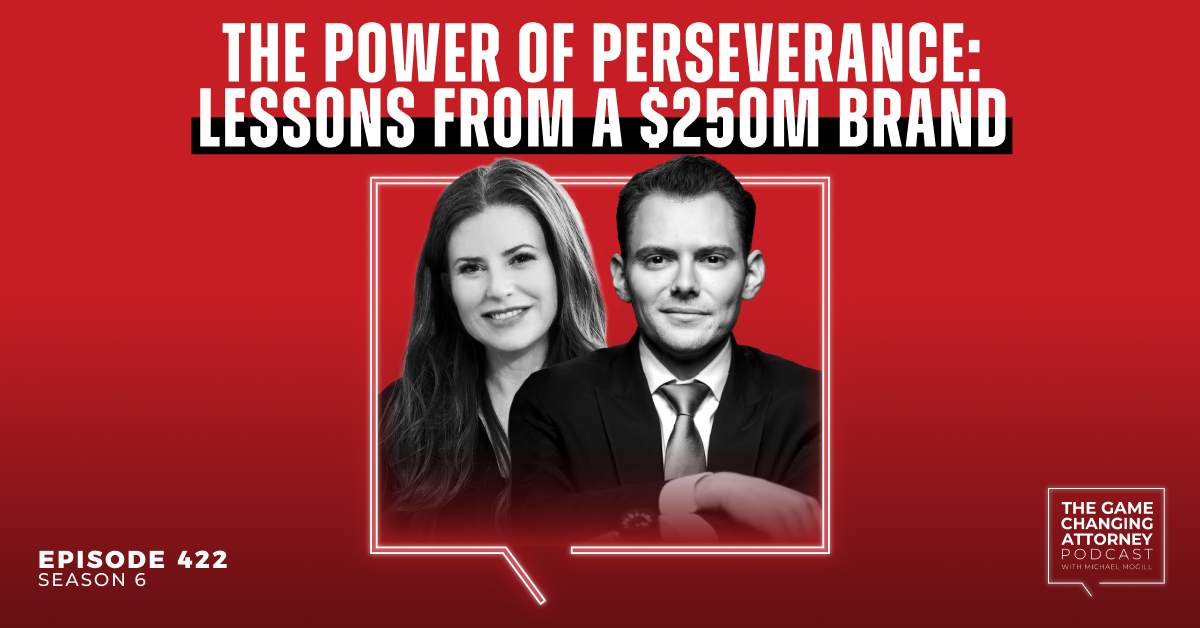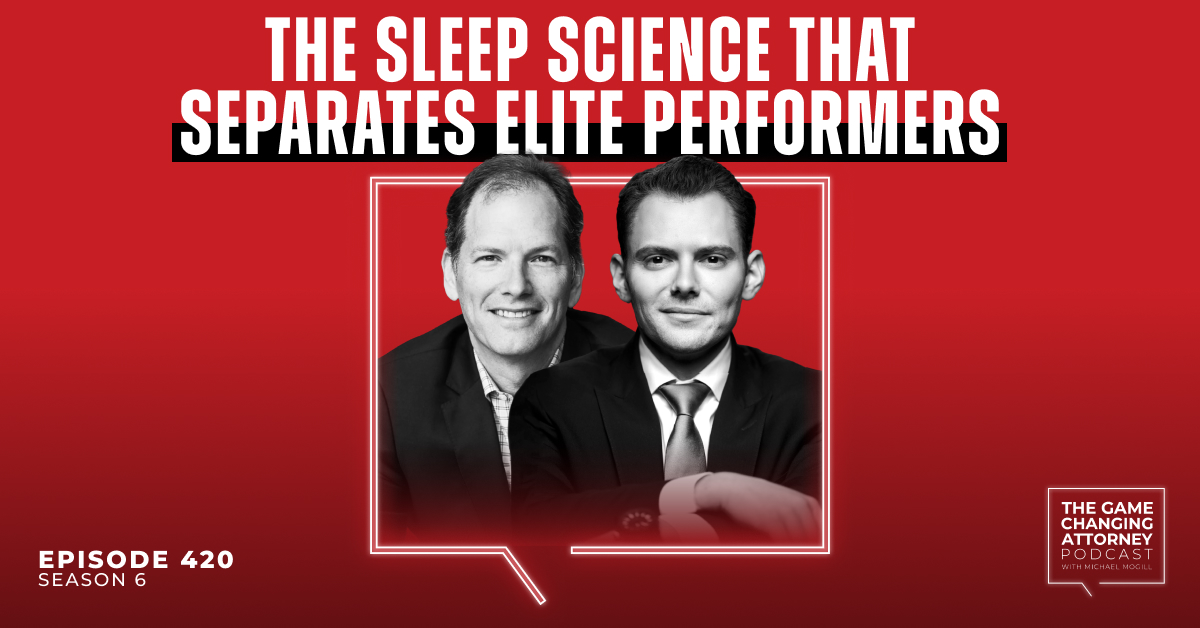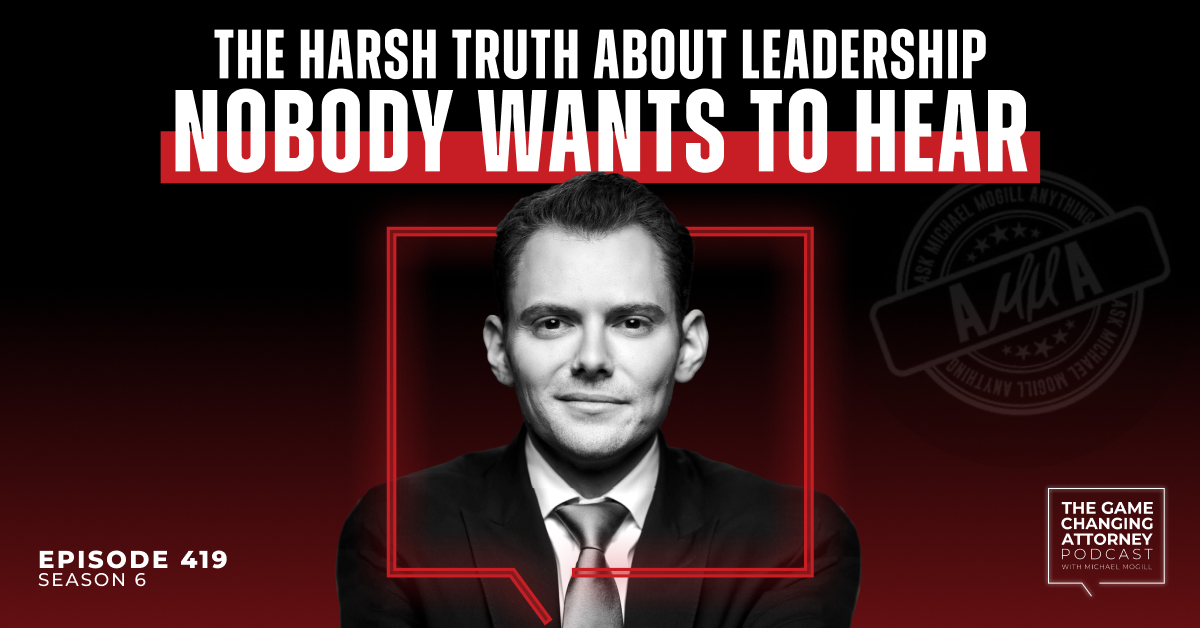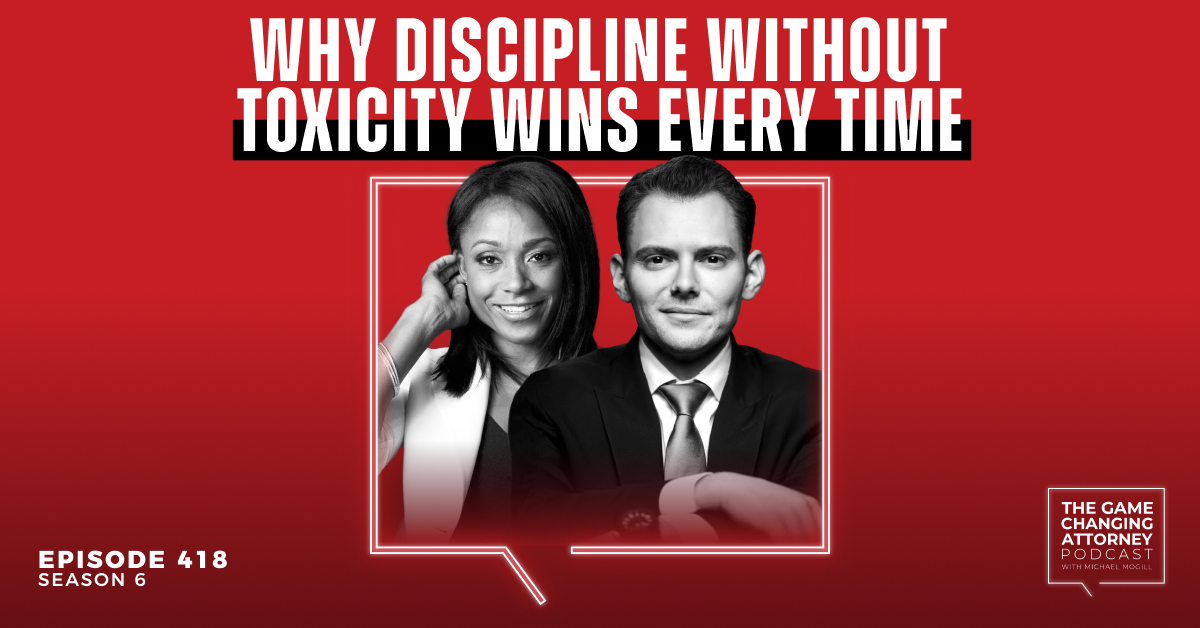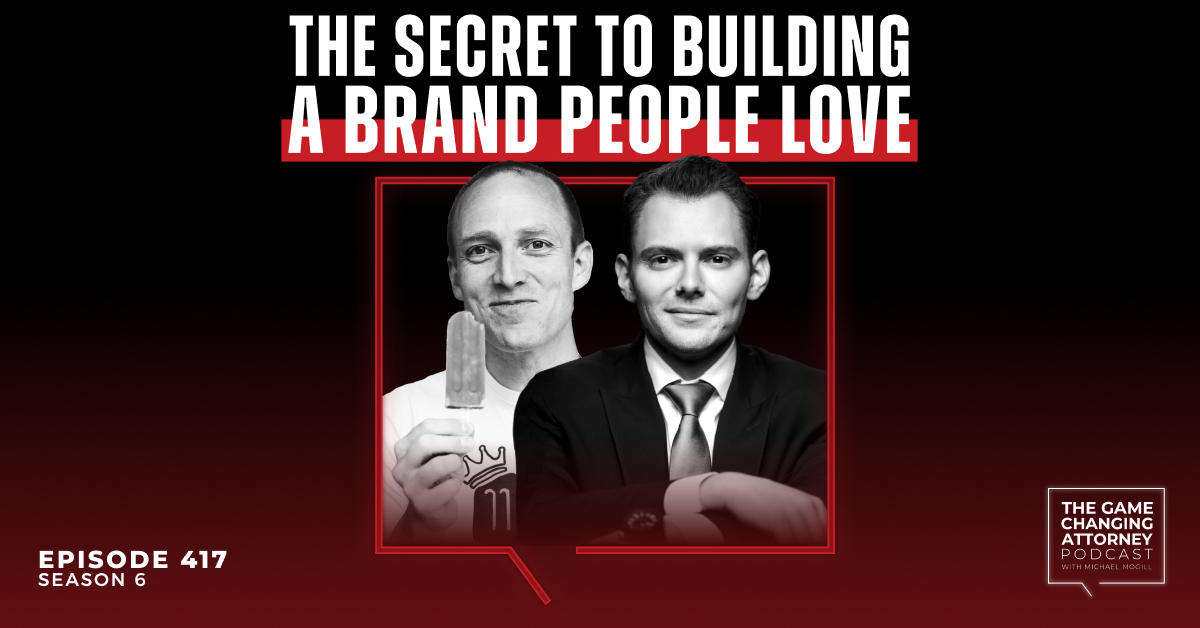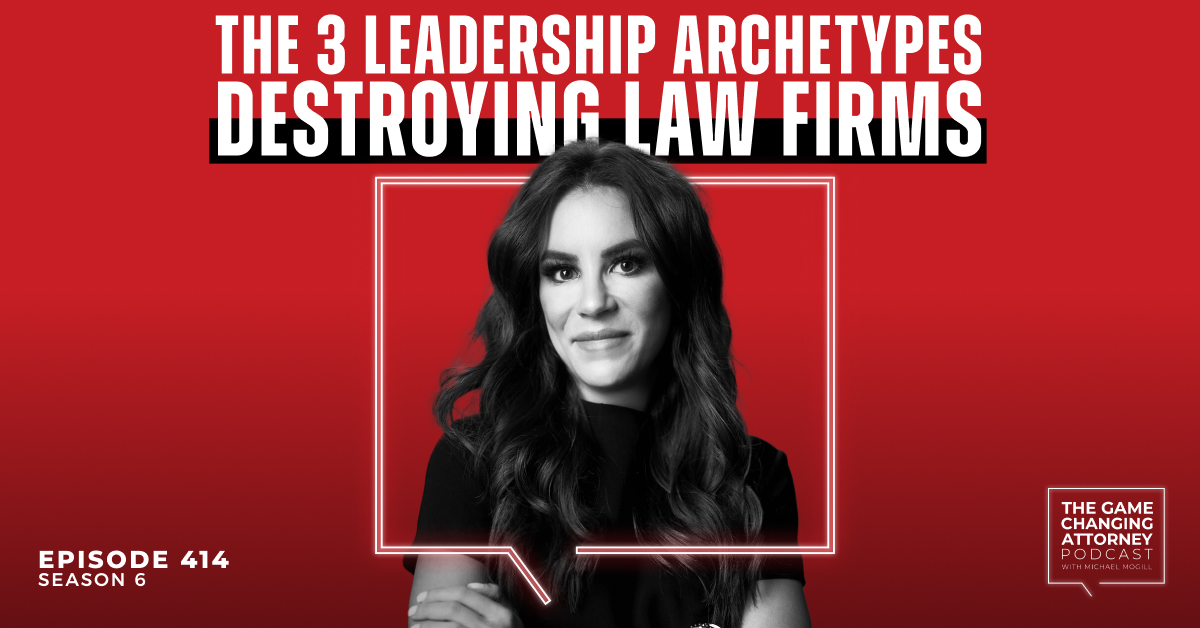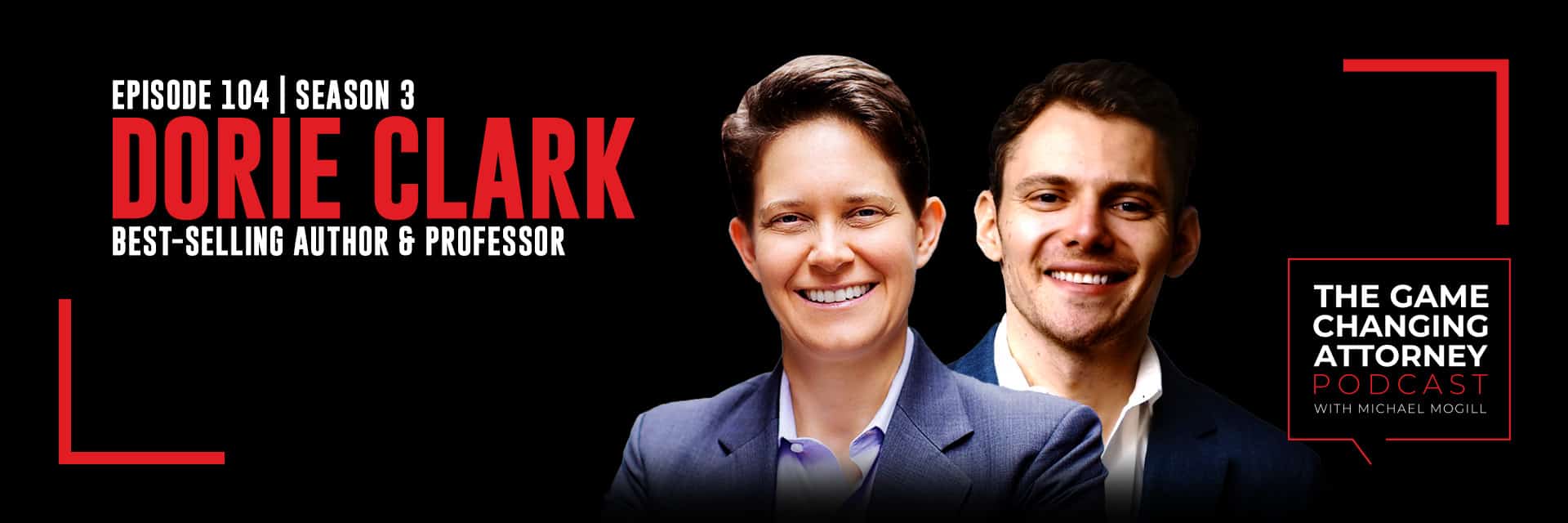
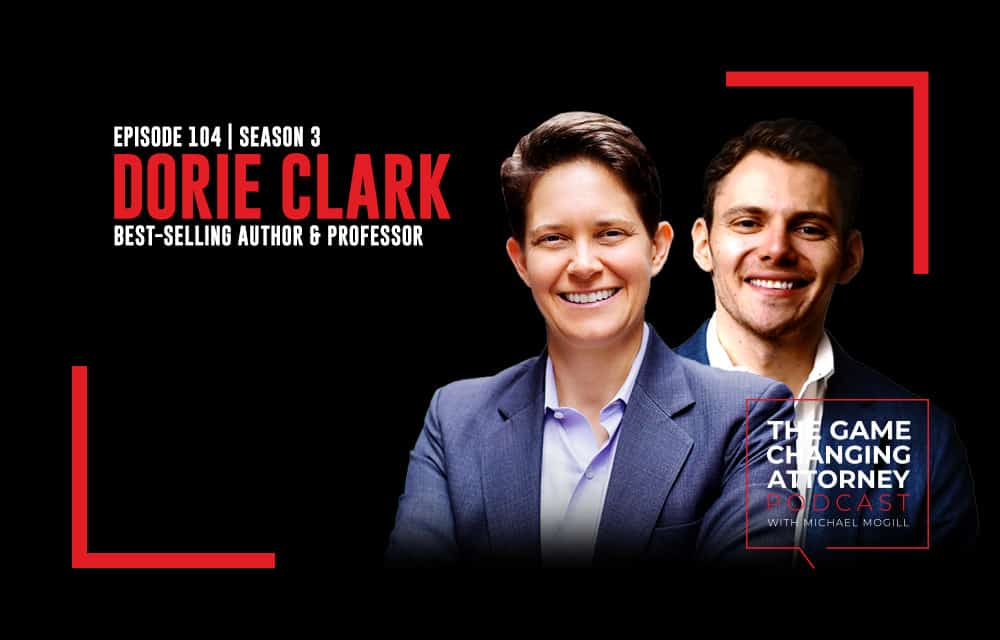
Episode 104 — Dorie Clark — The Long Game: How to Be a Long-Term Thinker in a Short-Term World
You won’t find answers about the future in a crystal ball, but best-selling author and the #1 communication coach in the world Dorie Clark can probably help you get better prepared for what’s coming your way.
On this episode of The Game Changing Attorney Podcast, Michael and Dorie sit down to discuss:
- The real reason we’re so obsessed with being “busy”
- What it means to be strategically patient
- Why growth is an infinite game
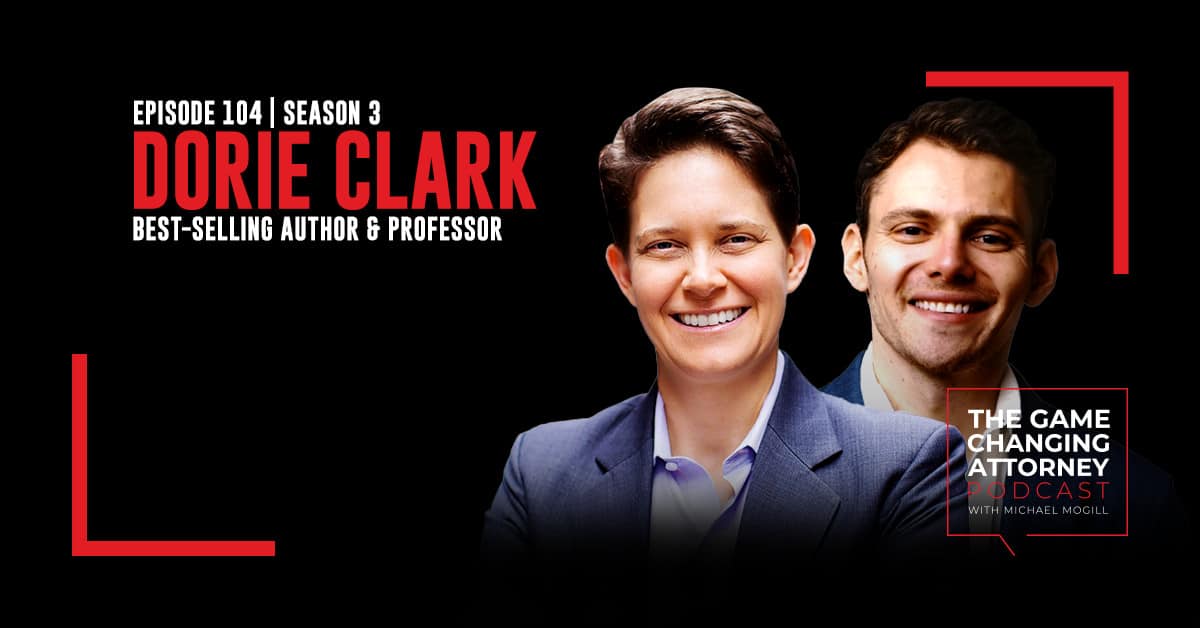
Listen & Subscribe
Show Notes:
Patience vs. strategic patience. “Strategic patience means threading the needle and understanding the distinction between things that you literally can’t speed up and not being passive. There are things you can do, hypotheses you can test that can enable you to be as smart as you possibly can in the process of waiting.”
Clear out your calendar. “Having white space, or unstructured time, is really important. It’s important in a practical sense because we all know that emergencies come up suddenly, whether it’s professionally or personally. White space enables us to be more flexible so that when there is an emergency, you can tend to it without bringing down your whole operation. More than that, it’s the unstructured time beyond that that enables us to get the distance from what we’re doing so that we can make connections and have the ability to think strategically.”
Stop accepting mediocre offers. “Most of us, as rational people, are smart enough to accept a really good offer — and on the contrary, if there’s a terrible offer on the table, we’re probably smart enough to reject it. But the offers in the middle are where many of us tend to get tripped up. We often talk ourselves into it, and while we could spend all of our time convincing ourselves to accept mediocre offers, time is finite. That means that if a great offer were to come along, we wouldn’t be able to accept it because of all the middle-of-the-road offers we agreed to earlier. It’s far better to give yourself the space to be able to say ‘no’ to things.”
You’re still the same you in the future. “We have a hard time figuring out who we will be in the future, much less what the world evolving around us will look like. Researchers say that a big problem we have is when we’re making short-term decisions, it benefits us today, but in many cases it harms us tomorrow or many years down the road. We often think that we will be a completely different person 20 years from now, meaning we don’t really take into consideration the things we do today affecting us later in life. But take it from financial planners who have shown clients aged-photos of themselves. The results showed that the clients made better investment choices because they got a visual telling them that they won’t be so different in the years to come after all.”
The four waves of your career. “1. The Learning Wave: When you’re first starting out in your career simply taking it all in and waiting for what to do next. 2. The Creating Phase: You understand who everybody is, but it’s time to start sharing your ideas and speaking up. 3. The Connecting Mode: Know people in your company, have people know you and what your contributions are, and make a positive impact that others notice. 4. The Reaping Mode: The end state where you’re respected in whatever you’re doing.”
Learn as you go. “If we keep learning and keep growing, each time around the block should get more fun because we’re able to enjoy it with fewer of the intense pressures that perhaps we faced in the initial time when we were first learning and building those connections.”
Long-term thinking necessities. “When it comes to being a long-term thinker, I think a key component many people miss is courage. It’s not easy to stand your ground, so when you work toward a long-term goal, the point is to stick with it and make it come to life, which is why so many people quit early on due to impatience. Resilience is another key component, because we don’t know what the world will look like in a few years, so sticking with it is important. The third component is curiosity, because asking questions and thinking of other options is vital to pivoting and adapting.”
What does being a game changer mean to you? “A game changer is a person who profoundly disrupts what is going to happen. It’s putting enough of a wrench in a situation so that what once was the trajectory of something has now changed completely.”
RESOURCES & REFERENCES
The Long Game: How to Be a Long-Term Thinker in a Short-Term World by Dorie Clark
TEDx
Derek Sivers
Ukraine
Connect with Michael
- Text directly at 404-531-7691
